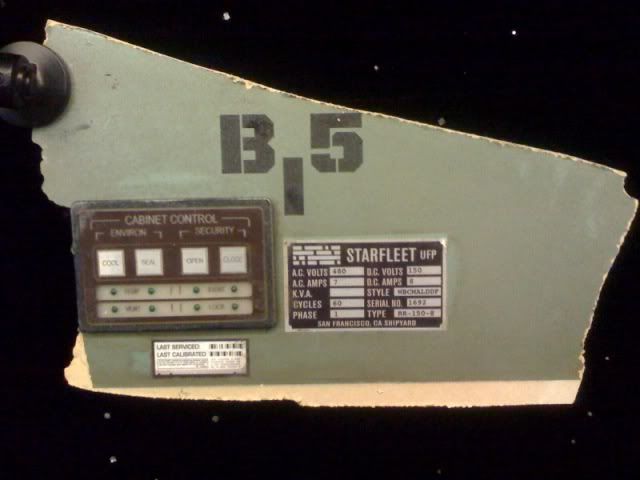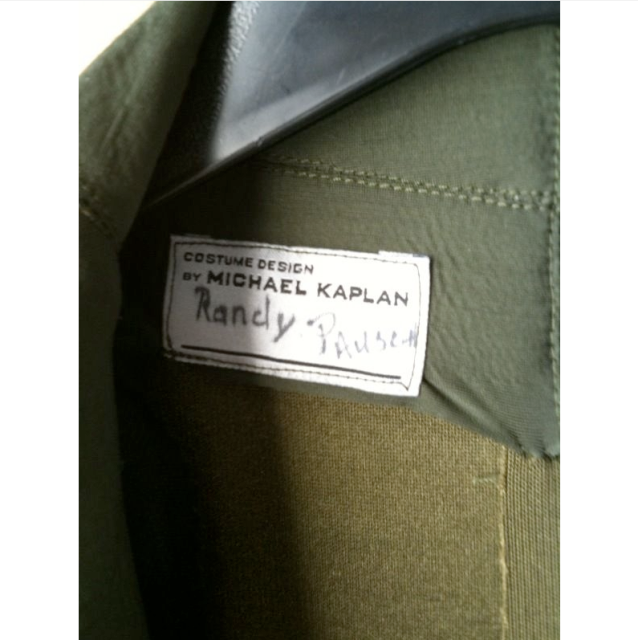 About 2 years ago, a fan named Ted Moustakis, bought 3 items from the 2006 Christie's Star Trek auction sued CBS, Paramount and Christie's for $ 7 million claiming that three items he bought at the auction were fake. Of course, he needed the $ 7 million for "emotional distress". Anyone who knows me, knows I felt this guy needed a dose of reality, not a lawyer. I didn't even covert this in my blog because he pissed me off so much.
About 2 years ago, a fan named Ted Moustakis, bought 3 items from the 2006 Christie's Star Trek auction sued CBS, Paramount and Christie's for $ 7 million claiming that three items he bought at the auction were fake. Of course, he needed the $ 7 million for "emotional distress". Anyone who knows me, knows I felt this guy needed a dose of reality, not a lawyer. I didn't even covert this in my blog because he pissed me off so much.This guy was everything wrong with our legal system. Someone who didn't read the rules, didn't do his research, blames the company who legitimately sold him the items, claims "emotional distress" and then sues for a ridiculous amount of money because some greedy lawyer sees a pay day. I certainly hope that his lawyer didn't take this on contingency so the plaintiff had to shell out tens of thousands of dollars for a losing cause.
I even contacted CBS and offered my help if they needed it for free, (And this was before Propworx) because I wanted to make sure people like this didn't suceed. If you don't do your homework, don't read the rules or the catalog, or overbid, that is your problem, not the auction house's.
Luckily, this guy lost his suit and you can read all about it here at Law.com.
The case was all over the news, but really a non-news story in my book because the guy had ZERO case. It was basically buyers remorse and a lack of research on his part that caused the problem, not anything that Christie's did.
The basis of his case is that Brent Spiner told Moustakis at the 2007 Las Vegas Star Trek Convention that the Visor he bought at Christie's was not the one he wore on-screen. But this was not news. Christie's had clearly spelled this out in the catalog and in the Auction Notes, where note # 633 read: "Please note that this should read 'made for' and not worn by."
You can read the entire description here on Christie's site too.
 Note the Salesroom Notice! Obviously Ted Moustakis didn't bother to read or understand the terminology.
Note the Salesroom Notice! Obviously Ted Moustakis didn't bother to read or understand the terminology. Moustakis also claimed that Christie's "had knowledge of hundreds, if not thousands of character duplicate uniforms that Paramount was warehousing."
Moustakis claimed the art house's promotional statements, along with the description of the uniform in the catalogue, led him to reasonably believe that the item was one of a kind. Well, I am not sure what he considers "reasonable" because neither I, nor anyone I knew, made that assumption.
In addition the court stated that the sales contract expressly stated that "all property is sold 'as is' without any representation or warranty of any kind by Christie's or the seller,".
What that means is if you want to buy movie props & costumes you need to do your homework. At a studio sale, the authenticity of an item is not in question, but the status of the item, i.e. screen used, production made, etc., needs to be carefully reviewed.
Alec











